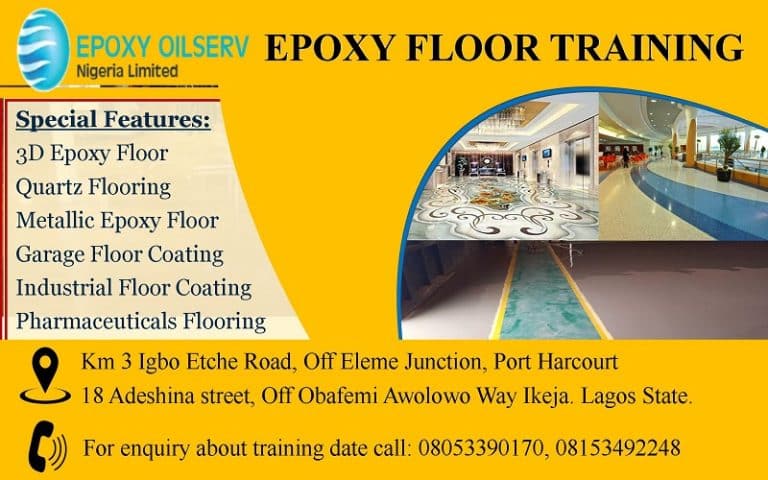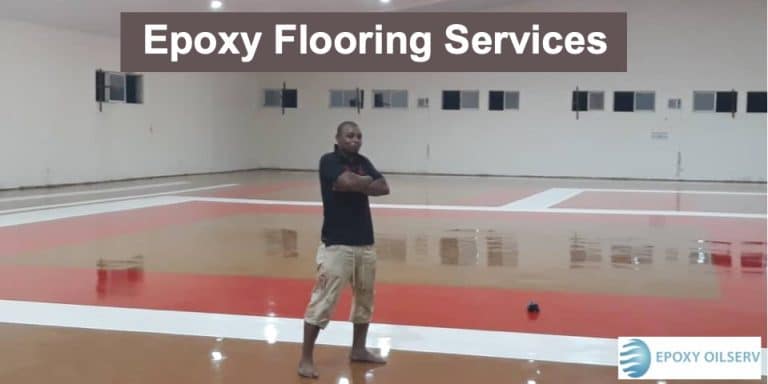Is Epoxy Flooring Toxic?
Table of contents
Introduction
Benefits to installing epoxy flooring
The downsides to epoxy flooring
Is Epoxy Flooring toxic?
Conclusion
Introduction
Epoxy flooring is a unique floor material that has steadily grown in popularity. Once a concrete floor has been smoothed and prepped, a resin and a hardening chemical are mixed together. The chemical reaction will turn the mixture into a hard plastic floor over a few days. So, the compound is poured onto the concrete and allowed to harden before a second or third layer is applied. This liquid to solid process gives epoxy flooring the ability to be strong, stain resistant, and more. Its most popular uses are in hospitals, schools, garages, and industrial environments. But it can be just as useful for residential living rooms, kitchens, or other rooms types. Epoxy coatings are normally applied over concrete floors to provide a high-performance, smooth, and durable surface that can last many years and withstand heavy loads. Many industrial sites, warehouses, and commercial buildings rely on epoxy floors to maintain clean and safe conditions for workers, equipment, and inventory.
There are many benefits to installing epoxy flooring in your home:
· Easy to keep clean – Perhaps the best feature of epoxy flooring is how easy it is to maintain. Epoxy floors are renowned for being easy to clean. Sweep up debris effortlessly and quickly, and mop or wipe it down with a cloth to get rid of any spills. It doesn’t get much easier than that! Epoxy floors are most popular in garages, and even oil and automotive fluids are no problem to clean up quickly and completely.
· Extremely durable – Epoxy flooring is also known for its durability, and will protect your floors from all types of impact. You can drive on it, park on it, store heavy equipment on it, or lay out your tools and work on a major project, causing no damage to the floor. It takes a pretty sharp or heavy projectile to damage this sturdy and long-lasting material.
· Extremely safe – Epoxy is a very safe coating for your hard floors. It’s slip resistant, shock resistant, and less abrasive than concrete and other types of industrial flooring. It’s also water resistant, and will protect your floor from any spills, including harsh chemicals that would harm other types of floor. It can also withstand heat of up to 200 degrees, making it a better choice than most other types of flooring when it comes to fire resistance.
· Polished, clean look – Epoxy floors are virtually seamless, creating a smooth and uniform look. Beyond that, the glossy finish makes a professional and clean appearance. It can turn a garage or warehouse into a showroom, and can turn any type of space into an extension of your home. Some homeowners even choose to have epoxy flooring in their mudrooms, kitchens, bathrooms, or really anywhere. The finish creates a modern look, and the other benefits are still there.
· Colorful – As a bonus, epoxy is available in a wide array of colors or color combinations. Use a solid gray or beige to further enforce the uniform look, or choose an exciting color combination or the colors of your favorite sports team to make the space your own.
The downsides to epoxy flooring are:
Since epoxy ingestion is incredibly rare, the most common danger is inhaling epoxy before it cures. The fumes can irritate the nose, throat and lungs. High levels of inhalation can lead to respiratory damage or even cause asthma. You’ll want to ensure the area is well ventilated before applying the epoxy and while you’re waiting for it to cure.
Respiratory Damage: Inhaling epoxy fumes or dust can create long-lasting negative impacts on the human respiratory system. Because they attach themselves to the mucus lining, ingesting epoxy particles often leads to inflammation and irritation of the throat, nose, and lungs. When frequently exposed to large quantities of the chemical, the chances of developing asthma and sensitization are greatly increased.
Sensitization: In many cases, exposure to epoxy can lead to the development of an epoxy allergy, an effect also called “sensitization.” Unfortunately, this outcome is possible regardless of the frequency or duration in which a person inhales the substance. Once sensitization occurs, allergic reactions can occur from even the most miniscule amount of epoxy, making it incredibly dangerous to be around. On top of that, there is no known cure for the allergy.
Asthma: Aside from the possibility of developing allergies from epoxy, it is also common to experience asthma, whether it is a brand-new issue or an exacerbation of an existing condition. Those who suffer from epoxy-caused asthma often encounter symptoms including difficulty in breathing, wheezing, and tightness of the chest.
Dermatitis: If your bare skin comes into direct contact with epoxy, it is possible that you will experience dermatitis, which is most easily recognized by blistering, itching, and swelling. In extreme cases, epoxy-caused dermatitis can lead to long-term skin conditions, such as eczema.
Is Epoxy Flooring toxic?
Toxic means something capable of causing injury or death, especially by chemical means; poisonous. The answer is no, as long as you give the epoxy plenty of time to cure and harden.
Most Epoxy used in homes and businesses won’t have any Volatile Organic Compounds (VOCs). A VOC is a chemical with high vapor pressure at room temperature. This means any heat applied to the VOC will send evaporated molecules into the air, which can be dangerous for your health. Epoxy flooring is made of an epoxy resin, a chemical compound called a polyepoxide. This is a combination of prepolymers and polymers, or long and repeating molecules that are commonly found in plastics, that can create a hard, resistant floor on nearly any surface. To ensure the epoxy cures into a strong, solid surface, it is combined with a catalyst like a hardener which ensures it isn’t toxic once cured.
Conclusion
Epoxy Oilserv Nigeria strongly advises our loyal customer base to contact us for professional and safe epoxy flooring. we’re the best epoxy floor installers, and we would love to coat your garage, studio, storage space, or other areas of your house in a high-quality epoxy covering. We use a state-of-the-art, commercial-grade formula, and the best installation methods to ensure your epoxy floors look great and last. We do intensive preparatory work, including thoroughly cleaning the surface and prepping it by grinding and etching so that the epoxy bonds perfectly and smoothly. We install layer upon layer of tinted epoxy base coat, and colored texture pieces and chips, followed by a glossy finish coating, ensuring the floor is solid and long lasting. It only takes a day or two, and then the floor dries and cures for another day or two, and it’s ready to use.




